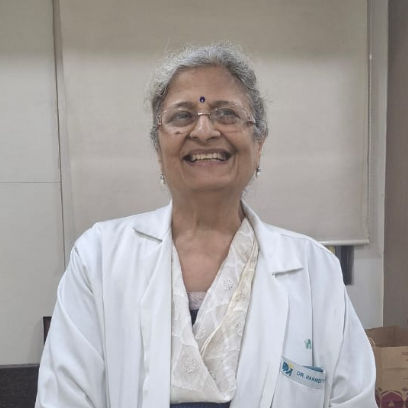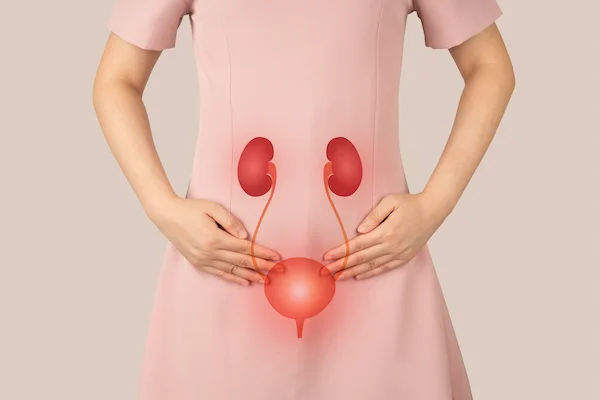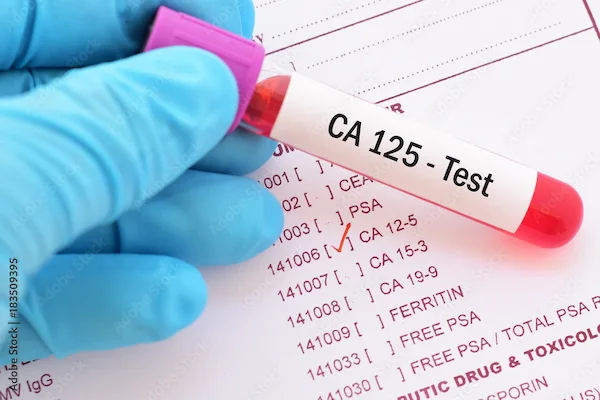Does Menstruation Occur After Hysterectomy
Wondering if menstruation occurs after a hysterectomy? Learn how different types of hysterectomy affect your menstrual cycle and what changes to expect post-surgery.

Written by Dr.Sonia Bhatt
Last updated on 3rd Jul, 2025

Introduction
A hysterectomy is a surgical procedure to remove a woman’s uterus (womb). Since menstruation (periods) occurs due to the shedding of the uterine lining, a common question many women have is whether they will get their periods after a hysterectomy.
The answer depends on the type of hysterectomy performed. Let’s break it down in simple terms.
Types of Hysterectomy and Their Impact on Menstruation
The type of hysterectomy you undergo plays a key role in determining whether menstruation will continue; here's how each type affects your menstrual cycle:
1. Total Hysterectomy (Removal of Uterus and Cervix)
Menstruation stops completely because the uterus, where periods occur, is removed.
If the ovaries are also removed (oophorectomy), menopause begins immediately.
2. Partial (Subtotal) Hysterectomy (Only Uterus Removed, Cervix Remains)
Menstruation stops because the uterus is gone, but the cervix remains.
Some women may experience light spotting if cervical tissue remains, but this is not a true period.
3. Radical Hysterectomy (Uterus, Cervix, and Upper Vagina Removed)
No periods occur since the uterus is removed.
Often performed in cancer cases.
4. Hysterectomy with Ovaries Intact
If the ovaries are not removed, they continue producing hormones (estrogen and progesterone).
No periods occur, but hormonal changes may still cause PMS-like symptoms (mood swings, bloating) since ovulation continues.
Consult Top Gynaecologists To Know More
Why Might Some Women Experience Bleeding After Hysterectomy?
While true menstruation stops, some women notice light bleeding or spotting after surgery. Possible reasons include:
Normal healing process: Light spotting or discharge is common during the first few weeks after surgery.
Granulation tissue: Scar tissue forming at the vaginal cuff may cause light bleeding during healing.
Hormonal fluctuations: If the ovaries are preserved, hormone-related spotting may still occur temporarily.
Infection or complications: Heavy or persistent bleeding may signal an infection or other surgical complications and should be evaluated by a doctor.
If you experience unusual bleeding, consult your doctor.
How Does a Hysterectomy Affect Hormones?
A hysterectomy can have a significant impact on hormone levels, depending on whether the ovaries are removed or preserved. Here's how each scenario affects your hormonal balance:
Ovaries preserved: When the ovaries are left intact, they continue producing hormones, which means natural menopause will occur at its usual time.
Ovaries removed: If both ovaries are removed (oophorectomy), it triggers immediate surgical menopause, often leading to symptoms such as hot flashes, mood swings, and vaginal dryness.
Life After Hysterectomy: What to Expect
Life after a hysterectomy can bring both physical and emotional changes; understanding what to expect can help you navigate recovery and adjust to your new normal with confidence.
1. Physical Changes
No periods means no menstrual cramps or bleeding.
If ovaries are removed, menopause symptoms may begin.
2. Emotional Adjustments
Some women feel relief (no more painful periods).
Others may feel emotional about losing fertility.
3. Health Management Tips
Hormone Replacement Therapy (HRT): If ovaries are removed, HRT can help manage menopause symptoms.
Pelvic Floor Exercises: Strengthening pelvic muscles can improve bladder control.
Healthy Diet & Exercise: Helps maintain weight and bone health, especially after menopause.
Regular Check-ups: Monitor hormonal balance and overall health.
When to See a Doctor?
Consult your doctor if you experience:
Heavy or prolonged bleeding
Severe pain or unusual discharge
Signs of infection (fever, foul-smelling discharge)
Conclusion
A hysterectomy stops menstruation, but the exact experience depends on the type of surgery and whether the ovaries are removed. If you have concerns about hormonal changes, menopause, or unexpected bleeding, discussing them with your doctor can help you manage post-surgery life better.
If you’re considering a hysterectomy or have questions about post-surgery care, you can consult a gynaecologist on Apollo 24|7 for personalised guidance.
Consult Top Gynaecologists
Consult Top Gynaecologists To Know More

Dr. Tripti Dubey
Obstetrician and Gynaecologist
23 Years • MBBS, MS ( Gynecology & Obstetrics).
Mumbai
Apollo Hospitals CBD Belapur, Mumbai
(150+ Patients)

Dr. Vineet Mishra
Infertility Specialist
36 Years • MD, Phd, DSc
Ahmedabad
Apollo Hospitals - Gandhinagar, Ahmedabad, Ahmedabad

Dr Bhawna Garg
Gynaecological Oncologist
26 Years • MBBS, MS, (PGI MS ROHTAK) FELLOWSHIP GYNECOLOGY ONCOLOGY, (CANCER INSTITUTE CHENNAI)
Delhi
Apollo Hospitals Indraprastha, Delhi

Dr Jaya Kumar Agarwal
Obstetrician and Gynaecologist
25 Years • MBBS , DGO , DNB (obstetric and gynecology) DGE diploma in Gyne endoscopy (Germany )
Delhi
Apollo Hospitals Indraprastha, Delhi

Dr. Harmeet Malhotra
Obstetrician and Gynaecologist
44 Years • MBBS, MD, DGO, FICOG
Delhi
Apollo Hospitals Indraprastha, Delhi
(25+ Patients)
Consult Top Gynaecologists

Dr. Tripti Dubey
Obstetrician and Gynaecologist
23 Years • MBBS, MS ( Gynecology & Obstetrics).
Mumbai
Apollo Hospitals CBD Belapur, Mumbai
(150+ Patients)

Dr. Vineet Mishra
Infertility Specialist
36 Years • MD, Phd, DSc
Ahmedabad
Apollo Hospitals - Gandhinagar, Ahmedabad, Ahmedabad

Dr Bhawna Garg
Gynaecological Oncologist
26 Years • MBBS, MS, (PGI MS ROHTAK) FELLOWSHIP GYNECOLOGY ONCOLOGY, (CANCER INSTITUTE CHENNAI)
Delhi
Apollo Hospitals Indraprastha, Delhi

Dr Jaya Kumar Agarwal
Obstetrician and Gynaecologist
25 Years • MBBS , DGO , DNB (obstetric and gynecology) DGE diploma in Gyne endoscopy (Germany )
Delhi
Apollo Hospitals Indraprastha, Delhi

Dr. Harmeet Malhotra
Obstetrician and Gynaecologist
44 Years • MBBS, MD, DGO, FICOG
Delhi
Apollo Hospitals Indraprastha, Delhi
(25+ Patients)
.webp)



